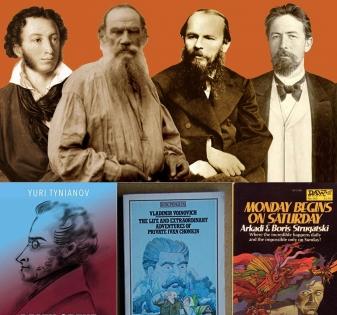Why Russian literature acquired a global following (IANS Column: Bookends)
By IANS | Updated: January 8, 2022 15:50 IST2022-01-08T15:39:04+5:302022-01-08T15:50:07+5:30
Literary traditions take centuries to develop, let alone acquire a following outside their own linguistic realm. Russian literature, however, ...

Why Russian literature acquired a global following (IANS Column: Bookends)
Literary traditions take centuries to develop, let alone acquire a following outside their own linguistic realm. Russian literature, however, saw an accelerated rate to global popularity within 200 years.
After nearly a millennium of an oeuvre comprising mainly folk/fairy tales, or the odd historical chronicle, it started to make its presence felt from the early 19th century with Pushkin and Gogol, and then, Dostoyevsky, Chekhov, Tolstoy, Bulgakov, Pasternak, Nabokov, Akhmatova, and their ilk have ensured its continuing prominence across genres.
But, Russian literature, especially of the "Classical School", which comprises its best-known works, has also laboured under a rather unjust and fearsome perception.
Take views like: "This Vladimir Brusiloff to whom I have referred was the famous Russian novelist. ... Vladimir specialised in grey studies of hopeless misery, where nothing happened till page three hundred and eighty, when the moujik decided to commit suicide."
Disclaimer: This post has been auto-published from an agency feed without any modifications to the text and has not been reviewed by an editor
Open in app